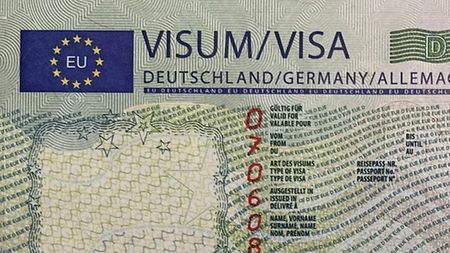
Germany has expanded access to its Schengen visa services with the launch of four new application centres in Nigeria, Cameroon, and Cyprus.
- Germany has launched four new Schengen visa application centres in Nigeria, Cameroon, and Cyprus to enhance service access.
- Facilities are located in Abuja and Lagos (Nigeria), Yaoundé (Cameroon), and Nicosia (Cyprus)
- Data reveals African applicants face significant rejection rates for Schengen visas
The move, part of a new seven-year partnership between Germany’s Federal Foreign Office and international visa outsourcing firm VFS Global, is expected to ease the visa application process for thousands of hopeful travelers from Africa and the Middle East.
The new visa processing centers are located in Abuja and Lagos (Nigeria), Yaoundé (Cameroon), and Nicosia (Cyprus), and are designed to streamline visa processing, reduce long waiting times, and improve service delivery.
The expansion comes as Germany continues to see rising demand from African and Middle Eastern nationals seeking entry for education, medical treatment, tourism, and employment.
Before this new partnership, there were no operational visa centres run by VFS Global in Nigeria. As a result, most applicants were required to submit their documents directly at the German embassy or consulate, a process often plagued by limited appointment slots and long waiting periods.
With the launch of the new centres, VFS Global will now manage the initial stages of the visa process, including application collection, biometric data capture, and appointment scheduling. This shift is expected to significantly streamline the experience and make services more accessible—particularly for applicants living outside major urban centres.

Africa’s struggle with Schengen visas
African countries continue to face steep hurdles in securing Schengen visas, with several nations recording some of the highest rejection rates globally in 2024.
These denials not only restrict mobility but also result in financial losses, as application fees are non-refundable. According to data from LAGO Collective, African applicants lost nearly €60 million ($67.5 million) in non-refundable Schengen visa fees in 2024.
The European Commission says countries with lower application volumes often see disproportionately high rejection rates, leaving many African travelers frustrated and uncertain.
A separate Henley & Partners report shows African applicants are nearly twice as likely to be denied compared to their Asian counterparts, despite submitting fewer applications.
The report highlighted the top five countries with the highest rejection rates were African. Comoros topped the list at 62.8%, followed by Guinea-Bissau (47.0%), Senegal (46.8%), Nigeria (45.9%), Ghana (45.5%), and the Republic of the Congo (43.0%). The data highlights ongoing visa inequality and growing calls for a more balanced and transparent process.
By extending its consular presence in key regions, Berlin aims to address visa bottlenecks and enhance people-to-people ties.
The partnership with VFS Global is also expected to introduce more digital tools and appointment systems, ensuring faster and more transparent processing for Schengen visa applicants.












